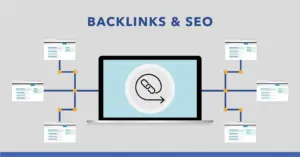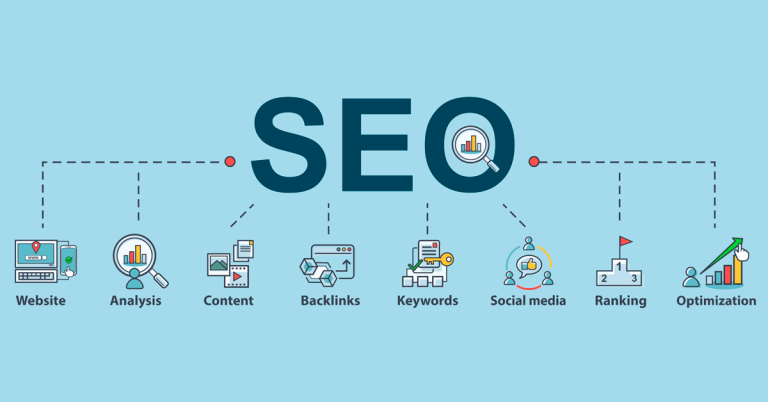Why Websites Need SEO Backlinks to Rank on the First Page of Google
In the competitive world of digital marketing, securing a spot on the first page of Google’s search results is a coveted achievement. With billions of websites vying for visibility, how can a site rise to the top? One of the most critical factors is the presence of backlinks. Backlinks, or inbound links, are links from other websites that point to your site. They are a fundamental component of Google’s ranking algorithm and play a significant role in determining a website’s authority, relevance, and trustworthiness. Here’s why backlinks are essential for achieving top rankings on Google.

1. Backlinks as Votes of Confidence
Google’s algorithm views backlinks as endorsements. When a reputable site links to your content, it signals to Google that your site is a trustworthy source of information. This “vote of confidence” is especially powerful if the linking site has high authority and relevance in your industry. The more high-quality backlinks you have, the more credible your site appears, increasing its chances of ranking higher.
2. Building Domain Authority
Domain authority (DA) is a metric developed by Moz that predicts how well a website will rank on search engine result pages (SERPs). It’s calculated based on multiple factors, including the quality and quantity of backlinks. Sites with higher domain authority tend to rank better. Backlinks from authoritative sites contribute significantly to improving your site’s DA, thereby enhancing its overall search visibility.
3. Enhancing Discoverability
Search engine crawlers use backlinks to discover new content. When a website links to your page, it helps crawlers find your site more efficiently, leading to quicker indexing and potentially higher rankings. This is particularly important for new websites or pages, as it accelerates their presence in Google’s index.
4. Signaling Relevance
Backlinks also help Google understand the context and relevance of your content. If your site receives links from other websites within the same niche or industry, it signals to Google that your content is relevant to specific topics or keywords. This context aids in better keyword ranking and targeted traffic.
5. Driving Referral Traffic
Beyond SEO, backlinks are a source of referral traffic. Users who click on a link from another site are directed to your website, which can increase your audience and potential customer base. Quality referral traffic often has a lower bounce rate and higher engagement, which are positive signals to Google about the usefulness of your content.
6. Improving User Experience
Many high-quality backlinks come from content that is useful and relevant to users. When your site is linked within content that provides value, it enhances the user experience. Google rewards sites that offer a positive user experience with better rankings. Thus, backlinks indirectly contribute to this aspect of SEO.
7. Competitive Edge
In competitive niches, backlinks can be the differentiating factor between similar quality sites. An analysis of your competitors’ backlinks can reveal opportunities to acquire similar links, helping you match or surpass their rankings. Building a robust backlink profile gives you a competitive edge, enabling you to stay ahead in the SERPs.
Best Practices for Building Backlinks
While the benefits of backlinks are clear, it’s crucial to focus on quality over quantity. Here are some best practices for building an effective backlink profile:
- Create High-Quality Content: Engaging, informative, and shareable content naturally attracts backlinks.
- Guest Blogging: Writing articles for authoritative blogs in your niche can earn you valuable backlinks.
- Outreach: Connect with influencers, bloggers, and industry leaders to promote your content and earn backlinks.
- Directory Submissions: Submitting your site to reputable directories can provide a steady source of backlinks.
- Broken Link Building: Identify broken links on other websites and offer your content as a replacement.
Conclusion
Backlinks remain a cornerstone of effective SEO strategy. They enhance credibility, improve domain authority, aid in discoverability, signal relevance, drive referral traffic, and contribute to a positive user experience. By focusing on acquiring high-quality backlinks, websites can significantly increase their chances of ranking on the first page of Google, ultimately driving more traffic and achieving greater online success.







